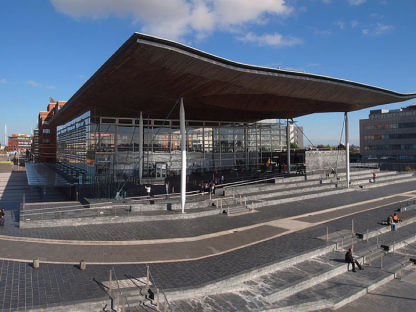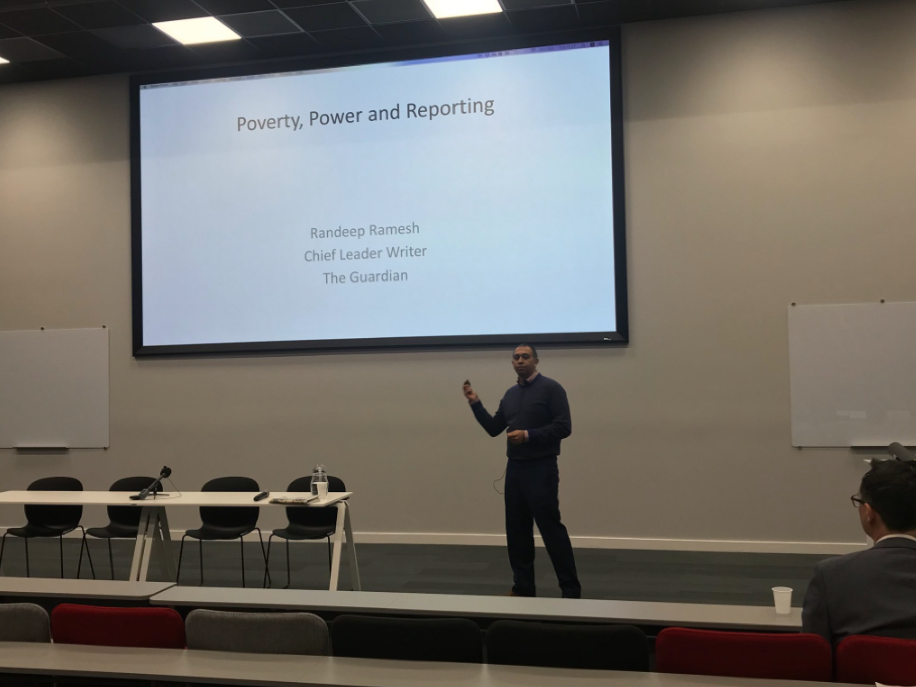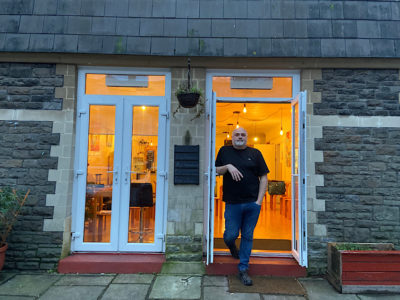Poverty in Wales 2018
Last year, the Joseph Rowntree Foundation predicted that poverty in Wales would rise over the next few years due to changes in benefits in the country and the new “whole government” approach to tackling poverty.
The UN’s special rapporteur on extreme poverty and human rights, Professor Philip Alston, claimed this new approach by government decreased accountability and efficiency in tackling the issue.
He labelled poverty in the UK as a “political choice” in a country which has the potential for far greater economic equality.
Poverty in the papers
Is it possible for a “Cardiffcentric” media to effectively understand and represent the worst off in Welsh society in their reporting?
Every day, as the Welsh public turn the pages of various newspapers across the country, they will come across the issue of poverty twice. According to Randeep Ramesh, chief leader writer for The Guardian, this is the average number of times the issue of poverty appears across all major UK publications daily.
In 1991, German philosopher Jurgen Habermas worried that, “The mass media has been hijacked by politicians, which results in ‘refeudalisation’ of the public sphere by political powers: citizens are reduced to passive masses who are controlled and manipulated by politicians and public debate amongst the people is given very little importance.”
The recent #ReportingOnPoverty conference hosted by Cardiff University explored how the issue of poverty is treated in the contemporary media. This evaluated if this reporting effectively serves those living in poverty or whether concerns of a media “hijacked by politicians” which fails to serve the public continue to resonate today.
Strong and stable?

Wales recently adopted a new “whole government” approach to tackling poverty, credit: https://bit.ly/2Lh69oU
How pressing an issue is poverty in Wales? Currently, a fifth of the population of the UK are living in poverty, with Wales having the highest national relative poverty rate in Britain. Dr Victoria Winckler, director of The Bevan Foundation, highlights the extent of deprivation in Wales by pointing out that there are currently food banks in almost every town across the country.
Additionally, just last month, the UN’s special rapporteur on extreme poverty and human rights published a report which criticised the Welsh government’s inefficient handling of poverty.
Read all about it
“Whilst all of the big macho butch topics of politics and economics are clearly very important, I think it’s a mistake to disconnect that from people’s lives.” – Dr Kerry Moore
The #ReportingOnPoverty conference discussed findings of the recently published Exploring the News Media Narrative on Poverty in Wales report by Cardiff University which investigated the treatment of poverty in the media. This revealed that, in a significant 65% of media coverage of poverty, the issue appeared as a subsidiary theme in relation to wider, more complex political, economic or business narratives. Additionally,the most heard voices in this reporting were political figures or parties, who took significant priority over citizens affected by the issue.

Poverty was most likely to be represented as a main theme in print than any other news outlet, table taken from Exploring the News Media Narrative on Poverty in Wales Report
The current narrative on poverty in the media appears to be one which ponders in depth those wider political or economic causes of poverty, but only touches on the ramifications of this for real people as a distant consequence.
Author of the report, Dr Kerry Moore of Cardiff University, said, “Whilst all of the big macho butch topics of politics and economics are clearly very important, I think it’s a mistake to disconnect that from people’s lives.”
A disproportionate focus on the wider causes of poverty allows the raw reality of this for people to become lost in a convoluted narrative. This leads to this “disconnect” between the news the public read in the papers about a failing economy and the daily consequences of this for those living in poverty.
Is this disconnect between these wider narratives and how they are affecting people on the ground in turn encouraging a media “hijacked by politicians” which fails to represent the needs of the people it should be serving?
“There is a lot of coverage of poverty in the background of things, but then it becomes like the wallpaper, it’s forever there, it’s this ongoing issue, and it’s a faceless issue.” – Dr Kerry Moore

“The poor are always with us” – The Guardian’s Randeep Ramesh at #ReportingOnPoverty, credit Lucy Smith
At the #ReportingOnPoverty conference, Randeep Ramesh of The Guardian asked attendees, “What was the last moving piece you read about poverty?” Randeep emphasised that the weaving of poverty among high fluting narratives neglects to examine the magnitude of the consequences of poverty for Welsh people in the isolated and meaningful way that it should.
Dr Kerry Moore said, “There is a lot of coverage of poverty in the background of things, but then it becomes like the wallpaper, it’s forever there, it’s this ongoing issue, and it’s a faceless issue.”
This depersonalised means of reporting on poverty which currently dominates the media narrative in Wales is arguably out of touch with the reality of poverty for individuals and fails to serve that significant portion of the country who are affected by it.
At the heart of the issue
BBC Wales social affairs correspondent India Pollock told Alt.Cardiff that, from her experience at the heart of the industry, “I don’t think the Welsh media are out of touch with the issue of poverty, but it’s a challenge to keep it in the news. We always need new lines and people to talk to us and that can be difficult.”
This lack of newsworthiness with the issue of poverty was a dominant theme of the #ReportingOnPoverty conference. As poverty is so ever-present, it fails to sustain public interest, despite being such a pressing issue. Paul Rowland, editor of Wales Online, stated that stories on poverty needn’t rely on a significant news hook, “but more tell the story of a society, a country, in a particular moment through documenting that lived experience, how something that’s happened up the food chain is lived now.”
A reframing of the issue of poverty away from complex narratives and towards “documenting that lived experience” is more likely to do the issue justice and better serve those affected by it. As the Welsh public flick through the pages of their daily newspapers and encounter meaningful stories about poverty, this is what will make them pause and contemplate the issue on a deeper level.
Poverty in Wales 2018
Last year, the Joseph Rowntree Foundation predicted that poverty in Wales would rise over the next few years due to changes in benefits in the country and the new “whole government” approach to tackling poverty.
The UN’s special rapporteur on extreme poverty and human rights, Professor Philip Alston, claimed this new approach by government decreased accountability and efficiency in tackling the issue.
He labelled poverty in the UK as a “political choice” in a country which has the potential for far greater economic equality.





